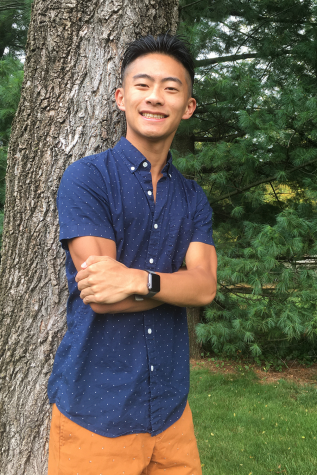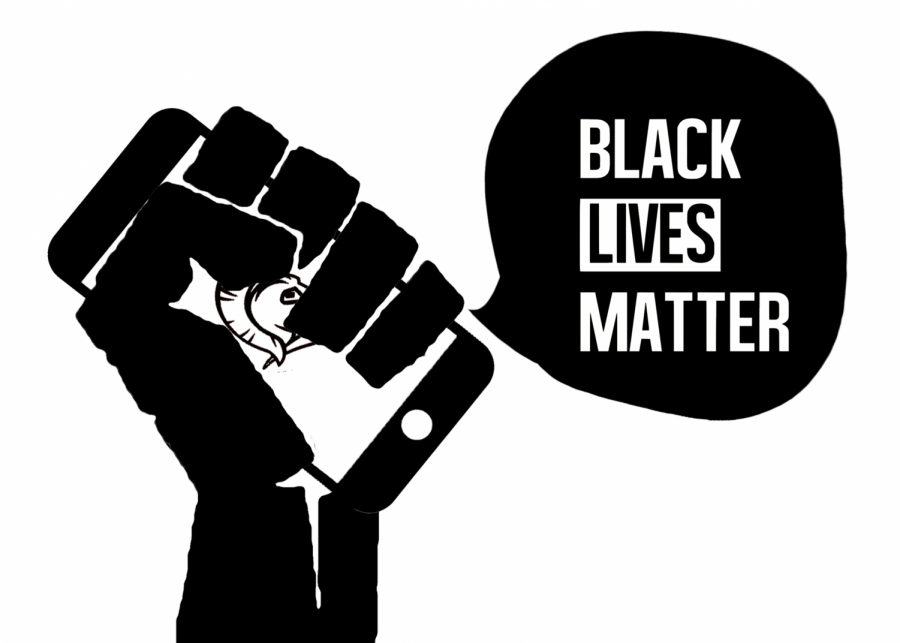Students use Social Media to Raise Awareness About Police Brutality and Race Relations
Students from Southern Lehigh have joined a wave of social media activism incited by the death by George Floyd in order to raise awareness about issues surrounding police brutality and race relations in the United States.
Social media allows for ideas and messages to be projected to millions, extending beyond the boundaries of local communities and international borders; allowing for one’s message to be heard across oceans and continents. This power has made social media one of activism’s strongest tools.
Following the death of George Floyd at the hands of white Minneapolis Police Officer Derek Chauvin, social media has emerged as the chief method of circulating activism-oriented content across America and around the globe. Information has been shared by individuals from all walks of life with average Americans, celebrities, and politicians all speaking out on social media. Dozens of Southern Lehigh students have joined in the movement to share petitions, and spread information and awareness to their classmates and community.
Social media platforms such as Instagram and Twitter have become dominated by content oriented towards raising awareness about Floyd’s death, the social issues surrounding his death, how others can offer their support, and continuous developments from demonstrations and riots which have swept the country.
“I feel like that watching all these videos over the past few days has shown that the police as an institution have definitely been abusing their power to put people in their place, especially people of color,” sophomore Andrew Bruck said.
For others, meanwhile, advocacy through social media has been also inspired by a hope to expand dialogues and foster discussion about the various issues which have come to define the aftermath of Floyd’s death.
“I’m trying to engage people who are willing to work for change in our society,” junior Jackson Knudson said. “I am also trying to develop dialogues with anyone who is willing to contribute to positive change in respecting and [how we are] treating our fellow humans.”
For the past several weeks, students have used social media posts as a means of pledging their support as well as helping to raise awareness among those who follow them.
“Since I’m just one person that doesn’t have a huge influence in the media, I’m just hoping to spread the word about racism and police brutality to the people that follow me,” senior Brianna West said. “I’ve met a lot of people who deny the existence of racism and believe that cops can’t do any wrong. I want to make sure they know both of those things are extremely wrong to think.”
Perusing through students’ Instagram posts and stories yields a plethora of content ranging from footage of protests and links to methods for monetary contribution to social justice groups such as Black Lives Matter, as well as advocacy for reform and acknowledgment of social injustices.
While much of the social media activism which has occurred has been relatively independent, students also involved themselves in larger, coordinated social media efforts in the form of #BlackoutTuesday on June 3rd. The hashtag, which originated in the music industry, sought to temporarily halt the sense of normalcy through the posting of a black square in order to encourage reflection on the state of America.
The trend was not free from scrutiny and discourse, however. Use of the hashtag “Black Lives Matter” in some Blackout Tuesday posts resulted in information relating to ongoing demonstrations being blotted out by a sea of black squares.
Additionally, discourse in trend was incited through the posting of a white or checkered square; a call back of “All Lives Matter” as a counter slogan to “Black Lives Matter.” Meanwhile, further criticism was lodged at the Blackout Tuesday campaign’s effectiveness and benefit beyond it being simply a trend.
“Instead of spreading useful information such as where to donate and how to directly support people, a lot of my peers flocked to Instagram and posted a black screen,” senior Anna Kim said. “I get that people are trying to help, but instead of posting a black screen and going back to their normal lives, they should be doing something and promoting activism. Posting a black screen is not activism if you’re not doing anything to help. It’s simply following a trend.”
For many newly realized social media activists, their newfound advocacy has been for some, an awakening to their ability to contribute to change and the power which social media offers.
“I’ve been following the Black Lives Matter movement for a couple years now, and now that it’s finally picking up speed among the public, I wanted to voice opinions that I’ve had for a while now,” Kim said. “I’ve also been reading about and advocating racial equality for several years as well, and I think it’s important to spread information, especially since it’s so easy to inform others with how many people use social media.”
To others their advocacy and inspiration to do so has also been a motivator to be courageous in advocating for what they believe to be right..
“I am hoping that people will see that I am not afraid to speak my mind on this issue, even though I’m not black, because this is an issue of humanity,” senior Abigail Zanders said. “If we all put in effort, changes will be made; the government can’t ignore us if people of all races and backgrounds come together in this fight for justice.”
Social media activism has allowed for these messages to be circulated to a greater extent, and in some cases helping to expose the reality of these issues to a greater audience.
“I have always felt this way about race relations in America,” said junior Charleston Bijou about how Floyd’s death affected his views. “Kareem Abdul-Jabbar said it best when he said, ‘Racism in America is like dust in the air. It seems invisible – even if you’re choking on it-until you let the sun in. Then you see it’s everywhere.’ Things have reached a boiling point. And these protests are shedding the light on issues so that people who may have been oblivious before can see.”
The past two decades have made social media one of, if not the most powerful tool for activism. In times like these, in which the country as a whole has risen up to fight for change, the realization of social media’s power as a tool for change is more apparent than ever. And as the country and world embrace the power of social media, so too have the students of Southern Lehigh.

Senior Lucas Zhang is a second-year staff reporter and Our World editor for the Spotlight. He is also President of Student Council, a member of the Speech...


